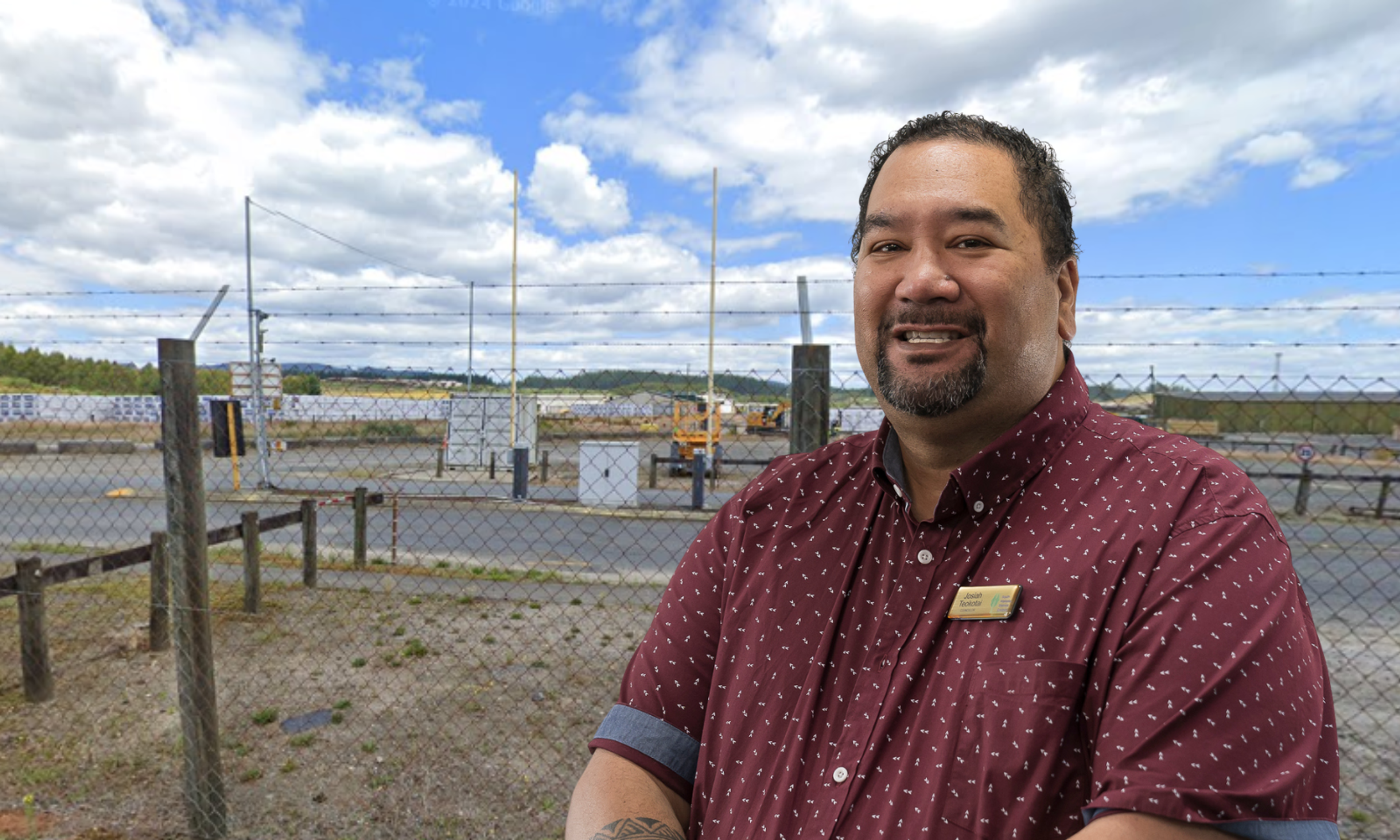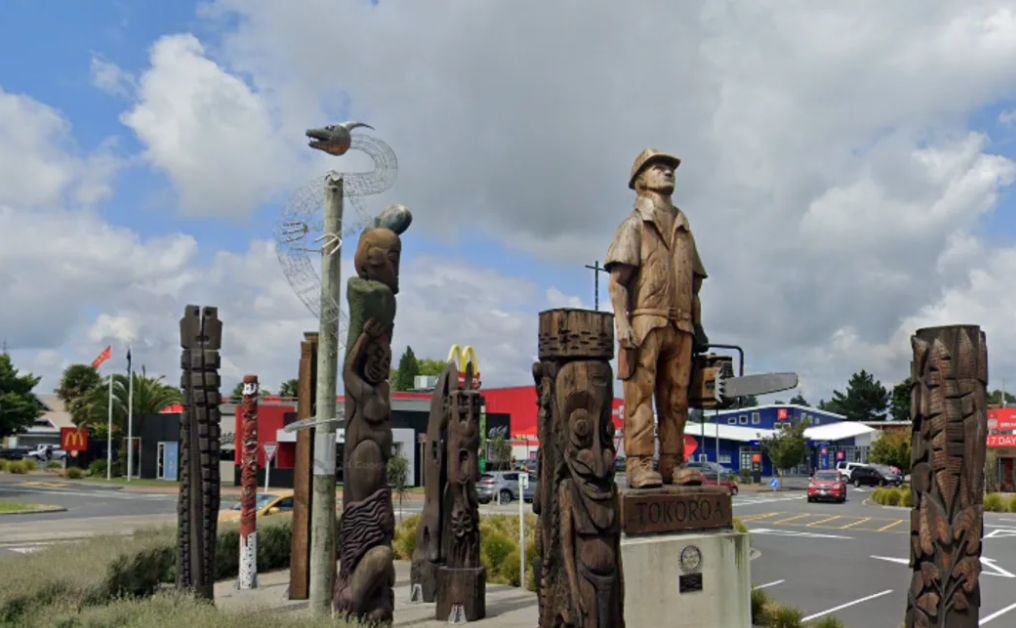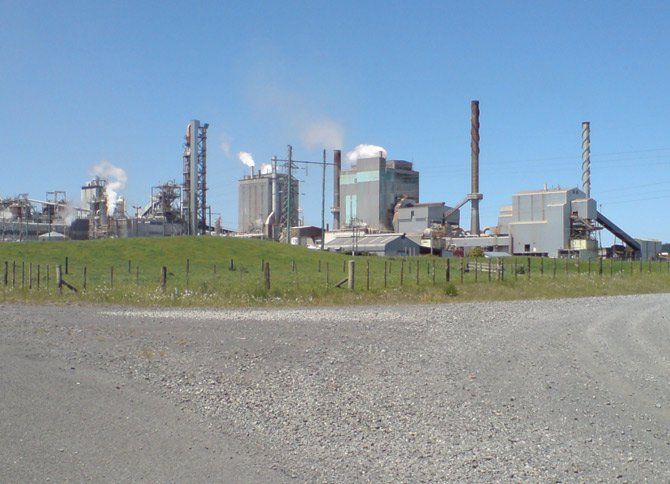

South Waikato councillor Josiah Teokotai responds to the closure of the local plywood plant.
Photo/South Waikato Council/Google Maps
‘A bitter pill to swallow’: Pacific families hardest hit as Tokoroa plywood plant set to close
Nearly 200 jobs are lost in Tokoroa – councillor Josiah Teokotai highlights resilience and the need for culturally appropriate support.


Peters backs visa reforms for Pacific nationals ahead of petition handover

Pacific's missing piece: Why US-China rivalry lacks legitmacy, not just power - experts reveal

‘We can’t be the police’: Papatoetoe by-election tests voter confidence


Peters backs visa reforms for Pacific nationals ahead of petition handover

Pacific's missing piece: Why US-China rivalry lacks legitmacy, not just power - experts reveal

‘We can’t be the police’: Papatoetoe by-election tests voter confidence
Pacific and Māori families in Tokoroa are facing a harsh blow as Carter Holt Harvey announces it will shut down its plywood plant, axing 199 jobs.
On Tuesday afternoon, workers were told the plant is expected to close in November. Only a small number of staff will remain to process imported timber.
For decades, Tokoroa has been a hub for Pacific communities, with migrants from Sāmoa, the Cook Islands, Tonga and other Pacific nations settling to work in the town’s pulp and timber industries.
Josiah Teokotai, South Waikato councillor, says the closure strikes at the heart of that legacy.
“It’s devastating for our community, especially Māori and Pacific families. Nearly 120 jobs are lost, most of them long-standing local families,” he says.
Speaking with William Terite on Pacific Mornings, Teokotai describes the situation as a “double whammy” after the closure of paper manufacturing in June.
Watch Josiah Teokotai's full interview below.
“It’s a bitter pill to swallow, particularly after the Kinleith Mill closures earlier this year. It's going to be huge for our people here in Tokoroa.
“It's definitely going to affect our economy locally; our supermarkets will be affected. We already have some low-income families living here, so we'll have new families added to that.”
The council is working with central government agencies to mobilise support, including through Project Phoenix, which was set up after the Kinleith redundancies. Teokotai stresses the need for culturally appropriate services for Māori and Pacific families.
“We have a lot of people in our services who are able to provide some real key health and social services for our community. Coming from the islands, we're very lucky that our parents built a structure where we're supported and within our churches as well,” he says.

The town of Tokoroa has a long history with the timber industry. Photo/Google Maps
For employees like E tū delegate Andrew Dobbs, who has worked at the plywood plant for 24 years, the closure is deeply personal.
“I don’t want to move out of town, but that might be the only choice we’ve got. Now there’s going to be a whole lot more people looking for jobs locally, but there aren’t that many jobs at present, not for that many people,” he says in a union statement.
“We knew things were tough, but I didn’t expect them to stop manufacturing altogether. It’s not quite a closure, but there will be so few people left there, making nothing, just reprocessing imports to send to market. Basically, imported product is just too cheap for us to compete with, that’s the guts of it.”
Despite the immediate hardship, Teokotai says Tokoroa’s Pacific and Māori communities will endure.

Kinleith paper mill and cogeneration power plant (right hand side), 2007. Photo/Wikimedia Commons.
“We're resilient people here in Tokoroa. People name us the 16th island of the Cook Islands. We came to one of the coldest places in New Zealand. We get up at five o'clock in the morning. We go out into the bush and work hard for a whole day. Then we go home, go to rugby practice, come home, have dinner, and then we go to church.
“[But] we have to go where employment is. We have to go where the jobs are.”
Teokotai is standing for re-election to the South Waikato Council and hopes to continue his family’s legacy within the community.
“When my parents came, they showed me that supporting other people made them feel good. They played a huge role in bringing our families from overseas and supporting them to grow and thrive in our little town of Tokoroa. That's the reason why I'm standing again.
“It's about making sure our people have the opportunities and guidance to achieve their best and to keep our community strong and connected.”